Politics
Indonesia turns down ear-splitting ‘haram’ street parties


People in an Indonesian village watched as a tower of loudspeakers mounted on a truck rumbled through their usually serene home, blasting a thumping bass loud enough to crack windows.
Loudspeaker towers are commonplace on Indonesia’s main island of Java, blaring a repetitive mix of electronic tunes and traditional folk music at street parties, but they have drawn the ire of local authorities and calm-seeking neighbours.
The loudspeaker stacks have proven so disruptive that officials this month have restricted their use while religious bodies have declared excessive and damaging sound from them to be “haram”, or forbidden under Islamic law.

“The sound is booming from 1pm to 3am. They play loud music and drink alcohol,” Ahmad Suliyat, a resident of Ngantru village in East Java province, told AFP.
“It’s really disturbing.”
Indonesians in East Java have shared videos on social media of cracked walls, falling roof tiles and damaged stores caused by the noise impact known as “sound horeg”, which loosely means to move or vibrate in Javanese.
The online backlash forced authorities in East Java to issue an order this month limiting noise levels and specifying the times and locations loudspeakers can be used.
“It was made for health and security reasons. The noise level must be regulated so it will not disturb the public peace and order,” East Java governor Khofifah Indar Parawansa told AFP.
Hearing problems
Ear-splitting noise has been shown to have adverse health consequences, including a higher risk of heart conditions for those exposed.
And Indonesia’s loudspeaker towers, popular for little more than a decade in the world’s most populous Muslim nation, have had dire consequences for some who attend the deafening street gatherings.
A woman died this month after allegedly suffering cardiac arrest caused by loudspeaker towers at a carnival she attended, local media reported, while there has been an increase in hearing problems among those attending the events.
The East Java government has capped sound system levels at 120 decibels, while mobile units used in parades or protests are limited to 85 decibels.

Mobile units are also banned from being used near schools, hospitals, ambulances and places of worship that are in session.
In July, a local Islamic council issued a religious edict that said excessive sound at parties that is capable of causing damage is forbidden by religion.
“The use of a sound system excessively, especially during a wedding convoy, or any other events that cause noise, disturb road users, or make people neglect worshipping, is haram,” read the fatwa.
Locals typically rent the speaker towers for weddings, circumcisions and Independence Day events — all celebrations that can last until dawn.
Some like Daini, who goes by one name like many Indonesians, believe the loudspeakers are a local tradition that should be kept.
She glanced at her cracked window, held together by duct tape, as music blared from the truck in Ngantru.
“The glass cracked during a sound horeg event last year. But that’s OK, people here like loud events,” said the 61-year-old.
Lax enforcement
But loudspeakers have continued blasting above the new limits, due to lax enforcement by local authorities.
After the rules were issued, an AFP journalist heard loudspeaker towers blaring music at an East Javan event as authorities watched on.
The World Health Organisation says sound at 85 decibels and above can cause hearing damage over time, and anything above 120 decibels can cause immediate harm.
Some Indonesians posted screenshots online of apps registering loudspeaker sound levels as high as 130 decibels.
Operators of loudspeaker towers argue they are responding to demand that generates revenue for local businesses.

“I believe most people who dislike sound horeg are not from here,” said David Stevan Laksamana, a 40-year-old loudspeaker rental owner in Malang.
“In Malang alone, it employed tens of thousands of people. This business is helping the economy.”
Others who cannot stand the disruptive street parties fear reporting them, with some loudspeaker tower owners reportedly parking outside complainants’ houses to blare music for hours.
“I never complain to the village head,” said Ahmad.
“I just keep quiet. I’m afraid of intimidation if I say anything.”
Politics
Modi-led BJP govt under fire for exiting Iran Chabahar port deal after US sanctions
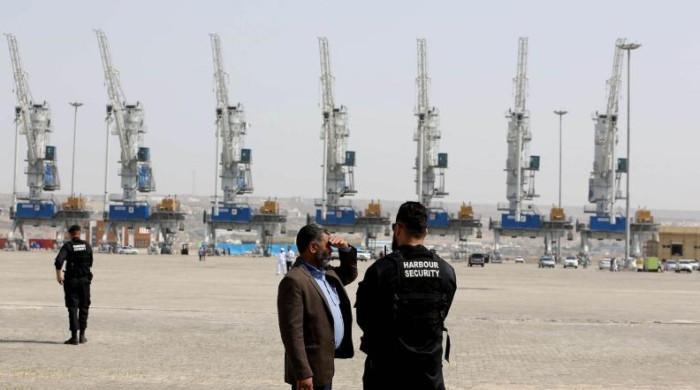
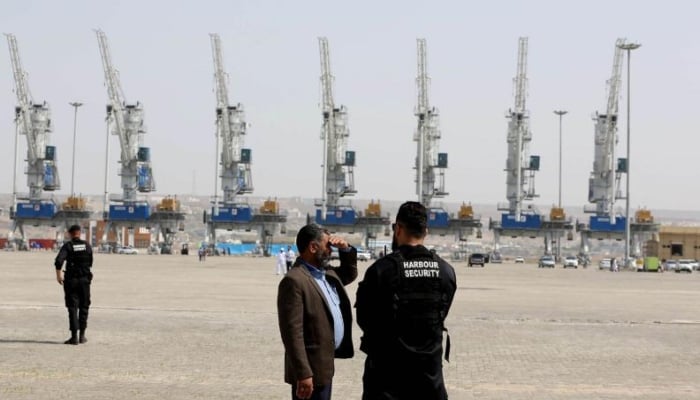
- New Delhi incurs $120m losses after exiting port development deal.
- Congress leader terms move “a new low” in India’s foreign policy.
- Experts say actions raise concerns about India’s role at Chabahar.
The Indian government, led by Prime Minister Narendra Modi, has come under heavy fire at home after it withdrew from the Chabahar port agreement with Iran, with critics arguing the move was a strategic retreat rather than a proactive foreign policy decision.
New Delhi was forced to abandon its involvement in the port after the United States imposed a 25% tariff on countries doing business with Tehran, The Economic Times reported on Thursday.
According to the publication, India’s withdrawal was carried out without any formal announcement, resulting in the loss of $120 million already paid to Iran.
The amount had been transferred before the decision to disengage and is now considered unrecoverable, the report stated.
The state-run company working at the port, India Ports Global Limited (IPGL), saw its board of directors submit collective resignations after the decision, while the company’s official website has also been shut down.
Congress party leader Pawan Khera termed the move “a new low” in the Modi-led government’s foreign policy.
“So the question is not of Chabahar Port or of Russian oil. The question is: Why is Modi allowing USA to arm-twist India?” he asked in an X post.
India assumed responsibility in 2024 for developing Chabahar port under a 10-year arrangement with Iran.
Meanwhile, a foreign journal reported that the $120 million already paid to Iran can now be used by it at its discretion for the port’s construction and development.
Observers described India’s withdrawal from Chabahar port as another major setback for New Delhi.
The Congress party sharply criticised the Modi-led government over the decision, saying the Indian prime minister “has once again surrendered to Trump”.
“$120 million of India’s taxpayers’ money was invested by the Modi government in this strategically important project, but now it’s all gone up in smoke,” read a post on the party’s X handle.
The Indian opposition party recalled Modi hailing the agreement as “a major strategic win”, saying India’s control over the port has been relinquished, with complete silence from the government.
“Unfortunately, Modi has bowed before Trump’s pressure and compromised India’s national interest,” the party stated.
Meanwhile, economic affairs experts believe the latest actions reinforced concerns surrounding India’s role at Chabahar.
They voiced concerns that India was using the port for nefarious objectives, saying that IPGL’s conduct suggested it was created primarily to acquire control of Chabahar.
Politics
Former South Korean president yoon sentenced to five years in prison
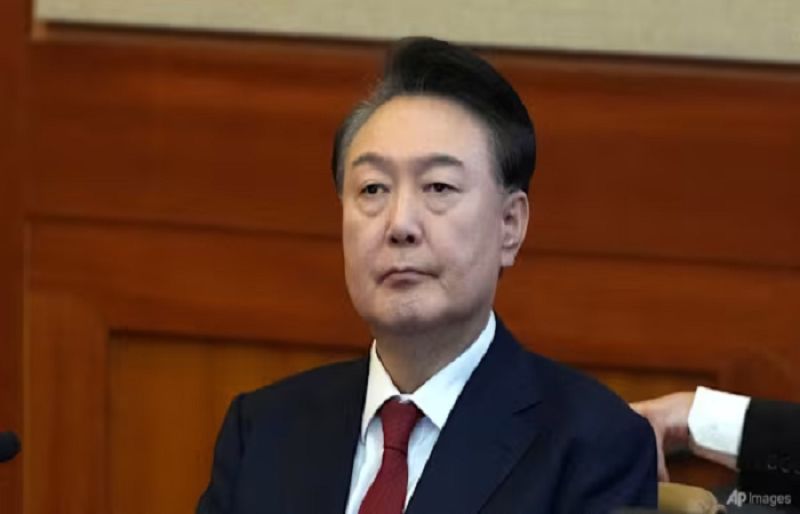

A South Korean court on Friday sentenced former President Yoon Suk Yeol to five years in prison on charges that included obstructing attempts by authorities to arrest him following his failed bid to impose martial law in December 2024.
The Seoul Central District Court found Yoon guilty of mobilising the presidential security service to block authorities from executing an arrest warrant that had been legally issued by a court to investigate him for his martial law declaration.
In televised proceedings, he was also found guilty of charges that included fabricating official documents and failing to comply with the legal process required for martial law.
The ruling is the first related to the criminal charges Yoon faces over his botched martial law declaration.
“The defendant abused his enormous influence as president to prevent the execution of legitimate warrants through officials from the Security Service, which effectively privatised officials … loyal to the Republic of Korea for personal safety and personal gain,” the lead judge on the three-justice panel said.
Speaking outside the court immediately after the decision, one of Yoon’s lawyers, Yoo Jung-hwa, said the former president would appeal the ruling. “We express regret that the decision was made in a politicised manner,” she said.
He could face the death sentence in a separate trial on a charge of masterminding an insurrection by declaring martial law without justification.
Yoon has argued it was within his powers as president to declare martial law and that the action was aimed at sounding the alarm over the obstruction of government by opposition parties.
Yoon, who also denied Friday’s charges, could have faced up to 10 years in jail over the obstruction charges related to when he barricaded himself inside his residential compound in January last year and ordered the security service to block investigators.
He was finally arrested in a second attempt involving more than 3,000 police officers. Yoon’s arrest was the first ever for a sitting president in South Korea.
Parliament, joined by some members of Yoon’s conservative party, voted within hours to overturn his surprise martial law decree and later impeached him, suspending his powers.
He was removed from office in April last year by the Constitutional Court, which ruled he violated the duties of his office.
While Yoon’s bid to impose martial law lasted only about six hours, it sent shockwaves through South Korea, which is Asia’s fourth-largest economy, a key US security ally, and long considered one of the world’s most resilient democracies.
Politics
South Korean ex-leader jailed for 5 years in first martial law verdict
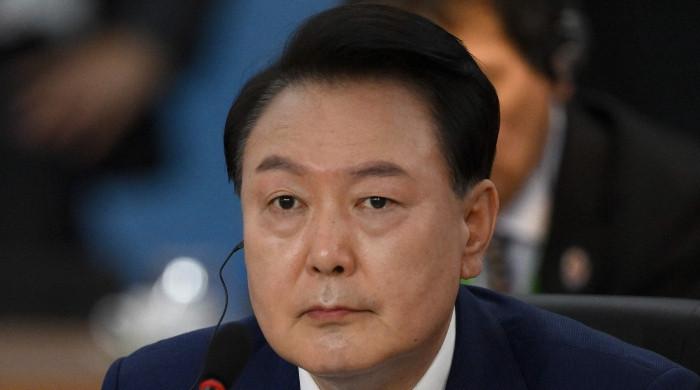

- Judge finds Yoon guilty of obstructing justice and other crimes.
- Separate insurrection verdict is scheduled for February 19.
- Yoon faces another trial over alleged drone flights to North Korea.
SEOUL: A South Korean judge sentenced former president Yoon Suk Yeol on Friday to five years in prison for obstructing justice and other crimes linked to his disastrous martial law declaration and in its chaotic aftermath.
It is the first in a series of verdicts for the disgraced ex-leader, whose brief suspension of civilian rule in South Korea on December 3, 2024 prompted massive protests and a showdown in parliament.
Now ousted from power, he faces multiple trials for actions taken during that debacle and in the turmoil that followed.
On Friday Judge Baek Dae-hyun at Seoul’s Central District Court said he found Yoon guilty of obstruction of justice by blocking investigators from detaining him.
Yoon was also found guilty of excluding cabinet members from a martial law planning meeting.
“Despite having a duty, above all others, to uphold the Constitution and observe the rule of law as president, the defendant instead displayed an attitude that disregarded the… Constitution,” Baek said.
“The defendant’s culpability is extremely grave,” he said.
But Yoon was not guilty of forging official documents due to lack of evidence, the judge said.
Yoon has seven days to appeal, he added.
Prosecutors had called for a 10-year prison term, while Yoon had insisted no law was broken.
Yoon defiant
It comes days after prosecutors in a separate case demanded Yoon be sentenced to death for his role as the “ringleader of an insurrection” in orchestrating the imposition of martial law.
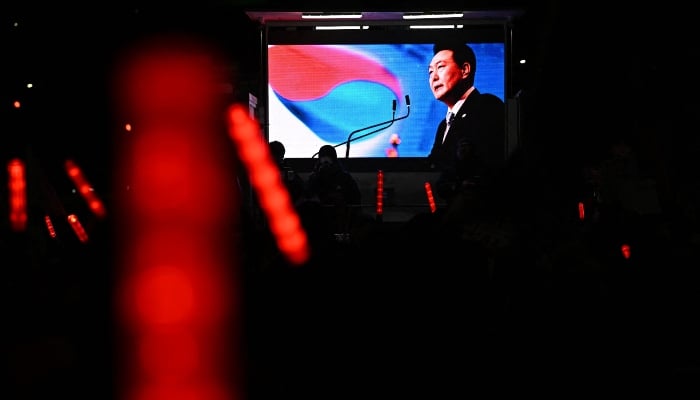
They argued Yoon deserved the severest possible punishment as he had shown “no remorse” for actions that threatened “constitutional order and democracy”.
If he is found guilty it is highly unlikely the sentence will actually be carried out, as South Korea has had an unofficial moratorium on executions since 1997.
Yoon was seen smiling in court as the prosecutors demanded the punishment.
And the former leader and top prosecutor has remained defiant, saying his martial law declaration was a lawful exercise of his presidential authority.
In closing remarks on Tuesday, he insisted the “exercise of a president’s constitutional emergency powers to protect the nation and uphold the constitutional order cannot be deemed an act of insurrection”.
He accused the then-opposition party of having imposed an “unconstitutional dictatorship” through their control of the legislature.
“There was no other option but to awaken the people, who are the sovereign.”
The court is scheduled to rule on the insurrection charges on February 19.
Yoon also faces a separate trial on charges of aiding the enemy, over allegations he ordered drone flights over North Korea to bolster his case for declaring martial law.
-

 Politics1 week ago
Politics1 week agoUK says provided assistance in US-led tanker seizure
-

 Entertainment1 week ago
Entertainment1 week agoDoes new US food pyramid put too much steak on your plate?
-

 Entertainment1 week ago
Entertainment1 week agoWhy did Nick Reiner’s lawyer Alan Jackson withdraw from case?
-

 Sports6 days ago
Sports6 days agoClock is ticking for Frank at Spurs, with dwindling evidence he deserves extra time
-

 Business1 week ago
Business1 week agoTrump moves to ban home purchases by institutional investors
-

 Sports1 week ago
Sports1 week agoPGA of America CEO steps down after one year to take care of mother and mother-in-law
-

 Tech4 days ago
Tech4 days agoNew Proposed Legislation Would Let Self-Driving Cars Operate in New York State
-
Sports7 days ago
Commanders go young, promote David Blough to be offensive coordinator






